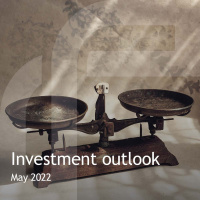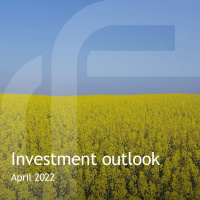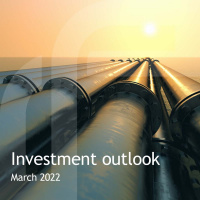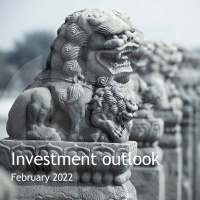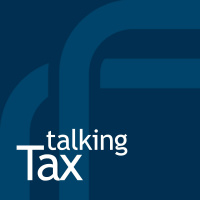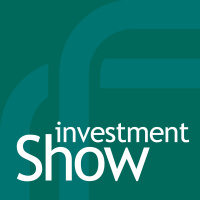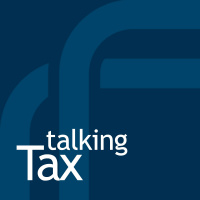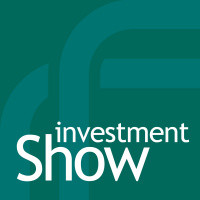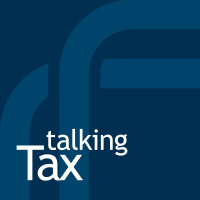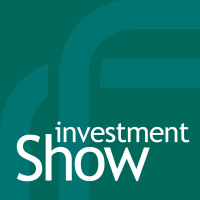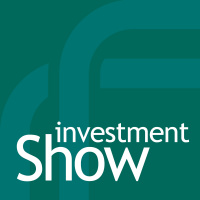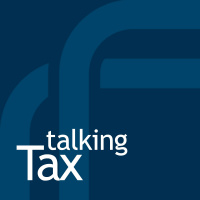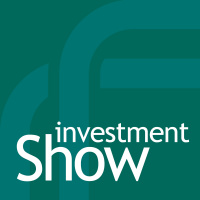Sinopsis
Our podcast delivers practical insights on key personal finance and business questions. We feature discussions with our industry experts on tax, investments and real estate, plus interviews with leading entrepreneurs. We aim to help you make better decisions.
Episodios
-
The impact of rising bond yields | May-22
13/05/2022 Duración: 24minAs the US 10 year treasury yield tips over the symbolic 3% mark, it may mark the end of the ‘TINA’ trade (‘There Is No Alternative’). Investors that have gravitated to stock markets as bond yields dipped now have a broader range of options, particularly as inflation appears to be nearing its peak. However, the inflation outlook is still uncertain and futures markets continue to suggest bond yields could rise further. There is increasing value in stock markets today, though volatility is likely to continue. This should mitigate any significant moves back into government bonds. There are increasing recessionary pressures, with economic growth dropping in the UK, US and Europe. As it stands, the US and UK are both expected to grow by around 3.7% in 2022, while the Eurozone is expected to expand by 2.7%. There are material risks to these forecasts from geopolitical uncertainty, rising interest rates and a high cost of living.There are still opportunities for investors and the corporate sector remains in robust h
-
Making sense of volatile markets | April-22
22/04/2022 Duración: 30minAfter a brief recovery, stock market volatility has returned since the start of April. Market sentiment remains dominated by the war in Ukraine, with its knock-on effects seen in soaring inflation and weakening economic data. However, while a resolution to the conflict in Eastern Europe looks remote, there are supportive factors for stock markets. Economic growth has remained fairly resilient, with corporates showing considerable pricing power, enabling them to pass on higher input costs. Households are still relatively robust, with savings made during the pandemic. Central banks remain committed to fighting inflation through higher rates. Government bond yields have spiked notably higher in recent weeks with US real yields turning positive for the first time since 2020. Markets are adjusting to an environment where real rates could be sustainably above zero, with potential opportunities emerging in fixed income. For more information on Evelyn Partners, please head to www.evelyn.comThis episode was recorded
-
HMRC enquiry for businesses
30/03/2022 Duración: 13minIt is important for businesses to have a strong tax risk management framework, as this should lead to a good relationship with HMRC and fewer HMRC enquiries. Before a business receives an enquiry letter, HMRC will probably have conducted a risk assessment and estimated any potential tax lost. Understanding HMRC’s process is therefore a good starting point. HMRC has access to a vast amount of information, both from the UK and overseas, to help identify potential risk areas within a business. These risks are usually identified when discrepancies are found between information from third party sources and details filed as part of a tax return.Find out more in our published article: HMRC enquiries: 'Why a strong tax risk management framework is critical for businesses' SUBSCRIBE:Stay up to date with our latest insights, subscribe to our mailing list here and choose the topics you’re interested in: https://bit.ly/3ArrCoaGET IN TOUCH:Have any feedback? We're listening, email us at: podcast@smithandwilliamson.comFOL
-
Rising interest rates and market volatility | March 2022
03/03/2022 Duración: 07minWhile the Ukraine crisis has undoubtedly destabilised markets, they were already fragile. Inflation has been the key driver for this uncertainty, with CPI in the US tipping over 7%. For the first time in 40 years, investors need to contend with central banks tackling a sharply rising cost of living by raising interest ratesFood and fuel remain the key areas of rising prices. Labour shortages, rising processing costs and delivery concerns have pushed the UN Food and Agriculture Organisation’s price index up by nearly 50%. At the same time, energy prices have spiked in response to the Ukrainian crisis. Having initially considered inflation to be transitory, central banks are now starting to act. All eyes are on the Federal Reserve, which may raise rates for the first time since 2018 in its March meeting. This change of mood has delivered higher bond yields and may prompt a significant rotation in markets in the year ahead.SUBSCRIBEStay up to date with our latest insights, subscribe to our mailing list here and
-
The end of tax year, are you ready for 5th April?
03/03/2022 Duración: 32minThe tax year end is approaching on 5th April. In this episode we discuss what you can do ahead of the year end to put you in the best tax and financial position. Episode overview:Consider making tax-free investments through National Savings or ISAs. The annual ISA subscription limit for 2021/22 is £20,000, and this limit cannot be carried forward if not used.Remember, all investments fluctuate in value and you may not get back the amount investedPension contributions are still a really tax-efficient way of saving for retirement, with tax relief given at your highest marginal rate of income tax. This is quite a complex area as tax relief is restricted in various ways.Spouses and civil partners can review who holds any savings that generate taxable income to ensure allowances are used efficiently.If you pay tax at the 40% rate or higher, you may be able to claim tax relief on gift aid donations you make to charity.As capital gains tax is charged when an asset is sold, you have some control over when to pay it,
-
Navigating rocky markets as 2022 starts with a whimper | February 2022
03/02/2022 Duración: 07minMarkets have had a volatile start to the year, with particular weakness from the technology sector. The immediate catalyst appears to have been the hawkish minutes from the most recent FOMC meeting, which raised expectations of faster and steeper interest rate rises. Global equities have fallen around 4%.1US equities have led the decline, with a significant sell-off in the 6 US mega caps, including Apple, Microsoft, Alphabet, Amazon, Tesla and Meta Platforms. Valuations had become stretched and the sector had looked ripe for a re-rating. Value markets, such as the UK, have fared better. While inflation, Covid variants and geopolitical tensions continue to weigh on investor sentiment, policy easing in China should improve global growth prospects and mitigate the impact of US rate rises. Inflation remains the key variable for the coming months. Source1 Refinitiv, Smith and Williamson SUBSCRIBEStay up to date with our latest insights, subscribe to our mailing list here and choose the topics you’re interested in:
-
Taking stock of 2021, and looking ahead | January 2022
11/01/2022 Duración: 08minLast year was a story of big numbers: seven billion vaccines delivered; a further $9 trillion in stimulus and global growth at an impressive 5.9%. This helped add $13 trillion to the value of global stock markets. However, this growth came with an inflationary sting in its tail. 1Consumer price inflation rose to multi-decade highs in the UK, Eurozone and US, pushed higher by accommodative policy, pent-up demand and supply chain difficulties. This saw treasuries deliver their 6th worst performance this century.1Continuing economic growth, with businesses and households in good shape, plus restocking from record low levels, should support the stock market in the year ahead. However, greater volatility is possible: parts of the market look highly valued, while economic growth could disappoint if inflation proves persistent. Source:1 Refinitiv, 4 January 2022
-
HMRC enquiries into Coronavirus Job Retention Scheme claims
13/12/2021 Duración: 19minIn this episode, Ami Jack Head of National Tax talks to by David Yewdall, from our Employer Solutions team and Clare Halligan, from our tax disputes and resolution team on HMRC enquiries into Coronavirus Job Retention Scheme claims.HMRC has estimated the amount lost due to fraudulent or erroneous CJRS claims is £5.3bn, or close to 9%. Attention has turned to recouping this.There are recent headlines about HMRC enquiries into the Coronavirus Job Retention Scheme/furlough scheme. 8.7% of all payouts in first year were deemed to be due to fraud or error. There may be a high number of errors due to the speed at which the scheme needed to be rolled out. Can you explain more about why we have this high level of fraud and error? SUBSCRIBE:Stay up to date with our latest insights, subscribe to our mailing list here and choose the topics you’re interested in: https://bit.ly/3ArrCoaGET IN TOUCH:Have any feedback? We're listening, email us at: podcast@smithandwilliamson.comFOLLOW US:Twitter - @SmithWilliamsonLinkedIn
-
The impact of shifting monetary policy | December 2021
03/12/2021 Duración: 07minAs the global economy moves back to pre-pandemic levels and inflation accelerates, central bankers are under increasing pressure to reverse easy monetary policy. Central banks in South Africa, Russia, New Zealand and Mexico have already raised interest rates this year to contain overheating risk, but all eyes are on the Federal Reserve, ECB and Bank of England. The US has already laid the groundwork to raise rates over the next year or so. In November, the Fed started to taper its asset purchases and expectations are currently for a rise in interest rates later in 2022. President Biden’s recent reappointment of Jerome Powell as Fed chair increases the chances of this outcome. The Bank of England defied expectations by not raising rates in November. It cited uncertainty over strength of the labour market post-furlough. Some of these concerns will have been allayed by subsequent data. Given annual CPI inflation is now running at a decade high 4.2%, the final hurdle has probably been cleared for the BoE to hike
-
The spectre of stagflation: real or imagined? | NOVEMBER
03/11/2021 Duración: 08minSoaring global energy prices have contributed to inflationary pressures, while economic growth has lost momentum. This has created fears of stagflation. This would be tough for stock markets, but is still only an outside possibility. Stagflation happens when inflation pushes prices up faster than wages and profits, forcing consumers and businesses to cut back on expenditure. Demand drops and a downward spiral ensues. Previous periods of stagflation, such as those following the oil price shocks in the 1970s have been difficult for stock markets. US stocks performed particularly poorly during the 1973-1982 stagflation period, declining at an annualised rate of -1.5% after inflation, compared to 3.2% gains for the UK equity market. However, stagflation is not our central scenario. Strong GDP growth expectations means firms are expected to pass on some costs to consumers without materially affecting demand - so the trade-off between growth and inflation is still favourable for fundamental company earnings. This
-
The UK Autumn Budget 2021
02/11/2021 Duración: 17minThe Autumn Budget has maintained a relatively steady ship, with no major announcements in several tax areas. Focus remains on keeping the UK a competitive place for business and encouraging innovation to lead to economic growth.In today’s special episode on the UK Autumn Budget, we highlight what the key changes can mean for you personally and for your business:Business TaxesResidential property developer tax rate confirmed 4%The annual investment allowance of £1 million will continue until March 2023Enhanced and extended cultural reliefsFollowing a consultation on the R&D tax incentive schemes, two major changes have been announced:Expenditure relating to cloud computing and data will be included within eligible spendThe wider scheme is being reformed to better support and incentivise innovation taking place in the UK, and not that undertaken overseas.Income taxes & Capital TaxesNo major changes for income tax, CGT, or IHT were included in the BudgetKey change is the previously announced 1.25% increa
-
Inflation: passing or permanent? | October 2021
04/10/2021 Duración: 07minEconomic recovery and inflation are increasingly being shaped by supply-chain issues: notably labour shortages and production bottlenecks. Manufacturers say a lack of equipment and materials are limiting production, while transport costs have surged. These shortages could have a lingering impact on inflation, which is now being felt across a range of sectors. Labour shortages are forcing employers to raise wages. Provided the business cycle does not end abruptly, the environment still favours equities over bonds. Nevertheless, the risk for markets is that higher inflation becomes more entrenched, forcing central banks to raise rates. SUBSCRIBEStay up to date with our latest insights, subscribe to our mailing list here and choose the topics you’re interested in: https://bit.ly/2SKomDqGET IN TOUCH:Have any feedback? We're listening, email us at: podcast@smithandwilliamson.comFOLLOW US:Twitter - @SmithWilliamsonLinkedIn - @Smith&WilliamsonThis episode was recorded on 30/09/2021Capital at risk. Please remembe
-
Offshore companies owning UK residential property
29/09/2021 Duración: 14minIn this episode, Ami Jack Head of National Tax and Susan Roller a Partner in our Private Client Tax team discuss offshore companies owning UK residential properties and key considerations you need to be aware of, including those arising as a result of the planned increase in corporation tax.Key discussion points to note in this episode:Offshore companies have been subject to a series of tax changes for the last 8 years and the corporation tax increase in April 2023 to 25% also affects all these companies.The new 25% rate applies to all non-resident companies regardless of the level of rental income – this is an increase from the current rate of 19% and will apply on any gains on sale.If you’ve got a UK residential rental property in a company that you are considering selling, think about exchanging contracts pre 1/4/23 so gain taxed at 19%. The Capital Gains Tax (CGT) will be based on market value at April 2015, which could be 20% gain on average. The 7.8% indexation allowance (April 2015 to when stopped in
-
Getting your affairs in order
13/09/2021 Duración: 47minAs Ghandi once said ‘The future depends on what we do in the present’. In today’s episode we discuss how best to get your affairs in order for when the inevitable happens. A big part of that is making a will but there’s other things to consider. Our special guest; Stuart Adams, a Solicitor and Legal Director in the Tax and Wealth Planning Team at Mishcon De Reya joins the conversation and demonstrates the importance of solicitors and financial planners working together to get the best outcome for the client.Source:Three in five (59 per cent) UK adults have not written a will, new research from Canada Life today reveals. This equates to 31 million people, whose property, financial and other assets could be left to someone they have not chosen when they die.https://www.wealthadviser.co/2020/09/28/290151/thirty-one-million-uk-adults-dont-have-will-place-says-new-research SUBSCRIBE:Stay up to date with our latest insights, subscribe to our mailing list here and choose the topics you’re interested in: https://bit.
-
The "Nixon shock" remembered 50 years on | September 2021
02/09/2021 Duración: 08minOnce President Nixon had abandoned the gold standard, the US could expand its money supply without being constrained by its holdings of bullion. This made it easier to issue debt to finance growth. This ability has been important in supporting the economy during the pandemic. Unprecedented monetary stimulus saw the pandemic-led recession last just two months, the shortest ever, but as financial markets grow increasingly dependent on the waves of central bank liquidity, there may be aftershocks as it is withdrawn. SUBSCRIBEStay up to date with our latest insights, subscribe to our mailing list here and choose the topics you’re interested in: https://bit.ly/2SKomDqGET IN TOUCH:Have any feedback? We're listening, email us at: podcast@smithandwilliamson.comFOLLOW US:Twitter - @SmithWilliamsonLinkedIn - @Smith&WilliamsonThis episode was recorded on 31/08/2021Capital at risk. Please remember the value of investments and the income from them can fall as well as rise and investors may not receive back the origina
-
Wealth transfer considerations
12/08/2021 Duración: 23minIn this introductory episode on transferring wealth, we touch on main issues families are facing and questions you should start thinking about to help you plan.When we refer to ‘wealth transfer’, we are referring to wealth cascading from the older generation to the younger generation – weather this is during the lifetime of the older generation or at death.SUBSCRIBE:Stay up to date with our latest insights, subscribe to our mailing list here and choose the topics you’re interested in: https://bit.ly/3ArrCoaGET IN TOUCH:Have any feedback? We're listening, email us at: podcast@smithandwilliamson.comFOLLOW US:Twitter - @SmithWilliamsonLinkedIn - @Smith&Williamson This episode was recorded on 19/07/2021This S&W The Pulse podcast is of a general nature and is not a substitute for professional advice. No responsibility can be accepted for the consequences of any action taken or refrained from as a result of what is said. The views expressed are not necessarily those of the presenter or of Smith & Willia
-
A tale of two markets | August 2021
04/08/2021 Duración: 08minBond and equity markets are telling a different story about the global growth outlook: equity markets have rallied significantly since the start of the year, while treasury yields have trended lower. Both markets can’t be right.*We are sticking closer to the upbeat view taken by the equity market, believing that bond yields currently suggest excessive pessimism. That said, we are alert to a number of risks, including inflation and slowing global growth. * Source: Refinitiv Datastream/Smith & Williamson, ONS, data as at 28 July 2021SUBSCRIBEStay up to date with our latest insights, subscribe to our mailing list here and choose the topics you’re interested in: https://bit.ly/2SKomDqGET IN TOUCH:Have any feedback? We're listening, email us at: podcast@smithandwilliamson.comFOLLOW US:Twitter - @SmithWilliamsonLinkedIn - @Smith&Williamson This episode was recorded on 03/08/2021Capital at risk. Please remember the value of investments and the income from them can fall as well as rise and investors may not
-
Taxation of cryptoassets
12/07/2021 Duración: 18minCrytposassets have dominated the headlines for a while. The FCA have also recently published a research note that estimated 2.3 million people now hold cryptoassets in the UK. Despite this increase, they also suggest that the level of understanding of cryptoassets is declining.One of the key considerations is whether they are held for investment or trading purposes. This will impact whether they are subject to capital gains tax or income tax.Income tax rates are currently higher than CGT rates that apply to investors.In most cases, cryptoassets are held as investments and profits on sale are subject to capital gains tax (CGT).Capital losses on cryptoassets can only be relieved against other capital losses, which is far more restrictive than trading losses.Crypto traders, just like those in stocks and shares, may instead find their profits are subject to income tax if the activity amounts to a trade; this is likely characterised by frequent buying and selling.There is a high hurdle to clear in order to meet t
-
Tapered annual allowance
09/07/2021 Duración: 20minIn this episode Anne McClean and Dougie Cameron chat about the annual tapered allowance, as well as the annual allowance limits that can be saved into a pension each year, and the ability to carry forward unused annual allowance from the previous three tax years.In case you missed our lifetime annual allowance episode, have a listen here: https://bit.ly/360jywvArticles mentioned:The Annual Allowance - pension contributions 2020/21: https://bit.ly/3ysq8bgTapered annual allowance timebomb - https://bit.ly/3kdSm67Pension Planning (Tapered Annual Allowance): https://bit.ly/2TEWSQ3SUBSCRIBE:Stay up to date with our latest insights, subscribe to our mailing list here and choose the topics you’re interested in: https://bit.ly/3ArrCoaGET IN TOUCH:Have any feedback? We're listening, email us at: podcast@smithandwilliamson.comFOLLOW US:Twitter - @SmithWilliamsonLinkedIn - @Smith&WilliamsonThis episode was recorded on 24/06/2021This S&W The Pulse podcast is of a general nature and is not a substitute for profess
-
Why equities could win out over bonds | July 2021
02/07/2021 Duración: 08minIn this episode we’ll be looking at why equities could win out over bonds in the second half of 2021.Investors are heading into the second half of 2021 in a buoyant mood after an encouraging first half of the year for markets, supported by accommodative policy and rising growth expectations1. Though the global growth spurt may peak sometime this year, in this episode, we suggest the fundamental backdrop for equities remains positive. Private consumption, the driving force for the GDP expansion and company earnings, is underpinned by healthy finances. Higher inflation could create more market volatility. The prospect of higher interest rates could disproportionally affect the US and we see more opportunities in non-US stocks. Source: 1 Refinitiv Datastream, data as at 29 June 2021SUBSCRIBEStay up to date with our latest insights, subscribe to our mailing list here and choose the topics you’re interested in: https://bit.ly/2SKomDqGET IN TOUCH:Have any feedback? We're listening, email us at: podcast@smithandwil

